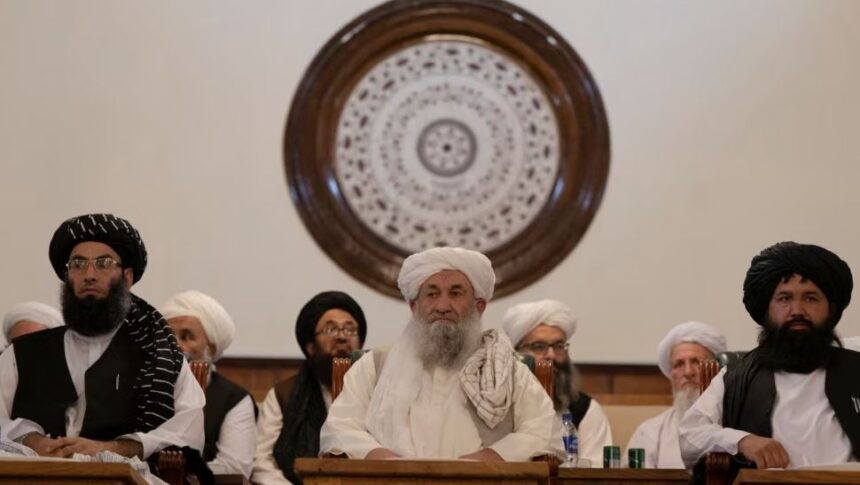The Taliban carried out public executions of four individuals on April 11 – the highest number of executions conducted in a single day since the Taliban regained power – sparking condemnation from groups across the world.
Local Taliban officials confirmed that the individuals – accused of murder – were executed in front of crowds gathered in the western provinces of Farah, Nimroz, and Badghis.
Eyewitnesses at one of the executions, speaking anonymously to Radio Azadi of Radio Free Europe/Radio Liberty, said that the families of the victims fired the shots at the accused.
“The families of [the accused] offered money in hopes that their relatives would not be executed, but the families of the victims refused. People don’t fully understand these matters; such events have a major psychological impact,” one witness said.
In Nimroz province, the Taliban invited civilians, civil servants, and military personnel to witness an execution at a stadium in Zaranj.
“The man was shot by the victim’s family. Watching that scene was horrific. No one wants to witness a killing, even if it is said to be divine punishment,” a local resident said.
The executions, part of the Taliban’s hardline interpretation of Islamic law, are described by the regime as qisas, or retaliatory justice.
Since taking power in August 2021, the Taliban have resumed corporal punishments and public executions, reviving practices from their repressive rule in the 1990s. So far, at least 10 people have been executed publicly.
Human rights organizations state that these punishments constitute a violation of international law.
According to them, using executions as public spectacles is not only inhumane but also fosters a culture of fear and trauma in communities already scarred by decades of war and violence.
In a statement posted on X, the human rights organization Amnesty International condemned the executions, calling them “abhorrent.”
“Afghanistan: The abhorrent public executions of four individuals today in Nimroz, Farah, and Badghis provinces highlight the Taliban’s alarming ongoing abuse of human rights in the country. The Taliban’s de facto authorities continue to flagrantly violate human rights principles,” the statement said, as reported by RFE/RL.
“The international community must put pressure on the Taliban to stop this blatant violation of human rights and help ensure compliance with international guarantees in Afghanistan.”
The Taliban claim that the executions followed “transparent investigations and judicial procedures,” but the United Nations and several human rights organizations have dismissed these claims, highlighting the lack of a functional judicial system and due process in Taliban courts.
“We are appalled by the executions of four men this morning,” the United Nations Human Rights Office said in a post on X, calling on “the de facto authorities in Afghanistan to establish a moratorium on the use of the death penalty.”







